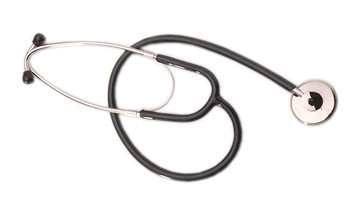
![]() Examination(Eliciting
signs)
Examination(Eliciting
signs)

(1).General survey :Take time to observe the patient for :
Gen. appearance and severity of illness, Look for attitude, built,mental status, See for position if pt is sitting , decubitus if he is in bed ,body habitus when standing and gait if walking.
Observe the external cloak of skin /eyes /nodes /nails for CIPLA-E i.e.
C___cyanosis,clubbing
I___icterus
P___pallor
LA___lymphadenopathy
E___edema ,skin eruption
See for skull-spine-skin
Now take the Vital Parameters_____TPR-BP
Temperature /pulse /respiratory rate and bp.
(2.) Specific examination
Local examination__IPPA and movements
Inspection Palpation Percussion Auscultation
Examine other systems now.
AT THIS POINT THE DIAGNOSTIC IMPRESSION SHOULD HAVE NARROWED DOWN .
![]() Investigations
Investigations
Inv asked for should be carefully selected w.r.t.
Is it necessary ?
Is it specific or sensitive ?
Variance /accuracy /precision ?
Risk ,cost and benefit ?
Usually these tests should be asked for routinely:
BUX
Blood ---Hb,CBC,ESR,PBS….
Urine ---Sugar,Albumin,BSBP….
X-ray---Chest,Bone..... if trauma
-------------------------------------------------------------------------------------------------------------------------------
NOW THE IMPRESSION STILL NARROWS DOWN
![]() SELECT A DIAGNOSIS FROM THE CLUSTER
OF DIAGNOSES.
SELECT A DIAGNOSIS FROM THE CLUSTER
OF DIAGNOSES.
----------------------------------------------------------------------------------------------------------------------------------
"Still if you cant make a Diagnosis , make a Decision .".......Cecil
---------------------------------------------------------------------------------------------------------------------------------
ROLE IN PATIENT EDUCATION
Also called 'Health education' ,it is an important part of guiding the patient.
Every patient has a desire to know about his illness and he feels unimportant when you talk about his illness to his relatives and not to him.
-----------------------------------------------------------------------------------------------------------------------------------------------
![]() TREATMENT AND
PRESCRIPTION
TREATMENT AND
PRESCRIPTION
Prescription does not necessarily mean only 'medicines'. There are in fact there are THREE things to prescribe :
1.Drugs ----should be correct and limited to thee bare minimum i.e. only ESSENTIAL drugs and not fancy preparations.
2.Diet------This is very important in EVERY disease and is regularly forgotten by 'specialists' Both these things treat the BODY.
3.Assurance-----This is to treat the MIND .Remember that words of assurance 'infused' through the ear work more wonders than i.v. fluids infused through the limbs.
-----------------------------------------------------------------------------------------------------------------------------------------------
![]() PRECAUTIONS WHEN
PRESCRIBING
PRECAUTIONS WHEN
PRESCRIBING
Some important precautions must be taken when writing a prescription :
1. Patient details.......name/age/sex.
2. Drug details........Write both the Generic & Trade names clearly.
3.Dosing details......Specify the exact dose, form & duration of the drug.
4.Follow up & specific precautions.
------------------------------------------------------------------------------------------------------------------------------------------------------
Methods of Diagnosis :
Methods of treatment :
------------------------------------------------------------------------------------------------------------------------------------------
-------------------------------![]() Award winning
presentation---------------------------------------------
Award winning
presentation---------------------------------------------
|
" Medicine is a science of uncertainty, And an art of probability." ~Osler |
Copyright © 2004 . All rights reserved
![]() We subscribe to the HONcode
principles of the Health On the
Net Foundation
We subscribe to the HONcode
principles of the Health On the
Net Foundation
![]() {
{
![]() Guestbook }
Guestbook }
--------------------------------------------------------------------------------------------------------------------------
^Top All contents are copyright protected, you must obtain written approval of owner prior to making any copies